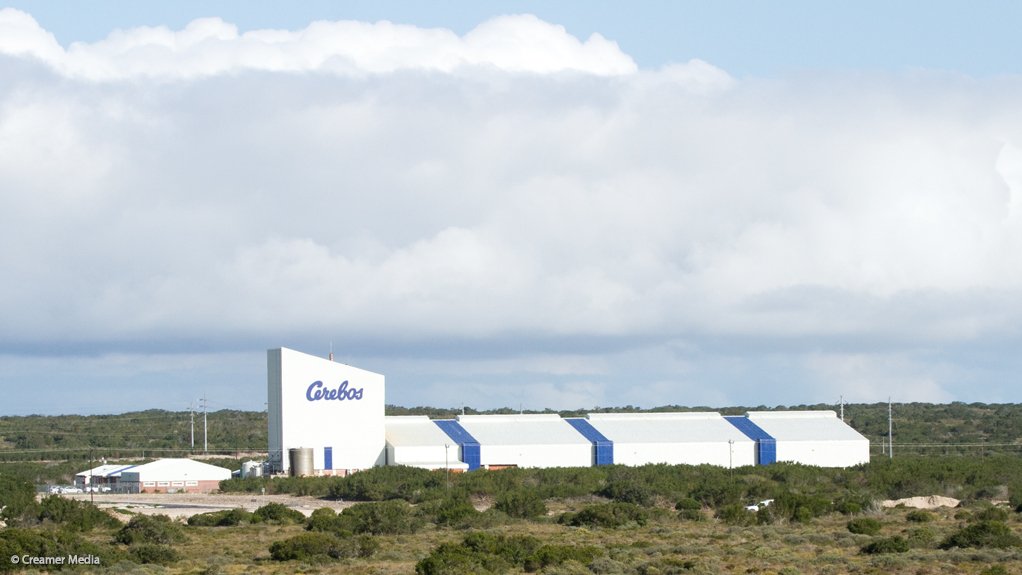The Coega Development Corporation (CDC) secured R1.84-billion in ten new investments in the 2013/14 financial year, becoming the first industrial development zone (IDZ) on the continent to attract a double-digit portfolio of investors in a 12-month period.
The corporation stated in its integrated annual report on Monday that the results depicted an organisation on a strong growth trajectory, delivering on its mandate to attract local and foreign direct investment to the Coega IDZ and driving socioeconomic development in Nelson Mandela Bay and the Eastern Cape.
“We have gone beyond the call of duty to break through various barriers to achieve remarkable milestones in the context of a difficult global investment climate.
“This speaks to an organisation that is maturing and building on sustained momentum, but it is also a testament to excellent teamwork,” commented CDC business development executive manager Christopher Mashigo.
The CDC’s self-generated revenue grew by 29% year-on-year to R383-million and, for the first time since its inception, self-generated revenue exceeded State funding by 12%.
Total revenue, which comprised State funding and self-generated income, increased from R673-million in 2012/13 to R725-million for the period under review, representing year-on-year growth of 8%.
Among the ten new investors were Smart South Africa, which invested R400-million in the automotive sector; Qtech Moulding, which invested R23-million in the automotive sector; Digistics, which invested R20-million in the logistics sector; ID Logistics, which invested R35-million in the logistics sector; Afrox, which invested R300-million in the chemicals sector; the No 1 Corporation, which invested R40-million in agroprocessing; and Ulba Tantalum Africa, which invested R200-million in the chemicals industry.
The IDZ’s renewable energy sector, meanwhile, received a R127-million injection from the Powerway/Sungrow joint venture (JV) and a R666.6-million cash boost from the Powerway/JA Solar JV.
By the end of the 2013/14 financial year, the CDC had 25 operational investors with several other projects, valued at R3.3-billion, under construction in the IDZ, and was forecast to reach 30 operational investors by the end of the 2014/15 financial year.
“These [investment] mirrored government’s central priorities to help drive growth in turnkey sectors identified as crucial to the economic growth of the country,” said Mashigo.
In addition to the successes in investment promotion, the CDC contributed to job creation and skills development over the year, benefiting 16 131 individuals both directly and indirectly from employment as a result of both Coega IDZ and other infrastructure projects.
The CDC also trained 14 441 people in critical skills needed for various industries, particularly artisans and invested over R17-million in community projects.
The organisation was forecast to increase its community social investment to R21-million in 2014/15, in line with its vision to be a catalyst for socioeconomic growth, said CDC marketing and communication head Dr Ayanda Vilakazi.
Small, medium-sized and microenterprise (SMME) development, meanwhile, remained a strategic priority on the 2013/14 financial year agenda.
The CDC achieved a 37.9% SMME participation and involvement rate, and the value of SMME development projects awarded in the year under review was R76-million.
The CDC further entrenched itself during the year as an implementing agent for major construction projects in the province, with a portfolio of 74 infrastructure projects worth R4.7-billion in its external programmes division.
According to Mashigo, the CDC was operating within a new context, largely as a result of the enactment of the new Special Economic Zone (SEZ) Act and the end of a five-year rolling strategy in 2013/14.
“The time is ripe for a reviewed approach to building on the momentum and achievements of the past years and to differentiate the offering from other competing IDZs and implementing agents. This means some slight adjustments to our strategic course.
“This has been a watershed year for the CDC with the convergence of a number of initiatives of strategic long-term significance. The CDC has defined a new five-year strategy that will focus on financial sustainability, strategic partnership and business intelligence,” he said.
Mashigo added that the future growth of the IDZ would be largely dependent on allocations from the SEZ Fund and the work of the centralised SEZ investment promotion unit.
“The external services arm of the CDC will now have a dual role of providing the bulk of funding for CDC’s operations, as well as funding to grow the Eastern Cape’s capabilities in conjunction with client, mainly government, departments. The net revenue generated from these operations is reinvested into the IDZ operations to grow investors as well as the pipeline,” he outlined.
The CDC’s external services division would continue to be strengthened as it continued to pursue IDZ investments.
To date, the corporation had projects in negotiation stage that were valued at R8.1-billion and those under feasibility stood at R116.3-billion.
However, the total investment portfolio amounted to R151-billion as at March 2014 and was expected to reach R200-billion within the next two years.
“The overarching imperative for the CDC – which has been the case for a number of years – is self-funding. Great strides have been made in this regard but new and possibly radical funding and revenue streams and models will be put in place and that is a key focus as the CDC develops the next rolling five year strategy.
“Each rand that we can spare from the fiscus is a rand that can be used towards other important socioeconomic projects by National Treasury,” Mashigo noted.
EMAIL THIS ARTICLE SAVE THIS ARTICLE
To subscribe email subscriptions@creamermedia.co.za or click here
To advertise email advertising@creamermedia.co.za or click here











